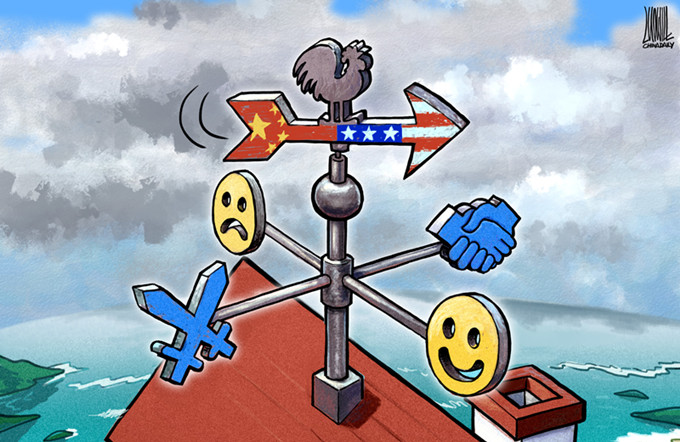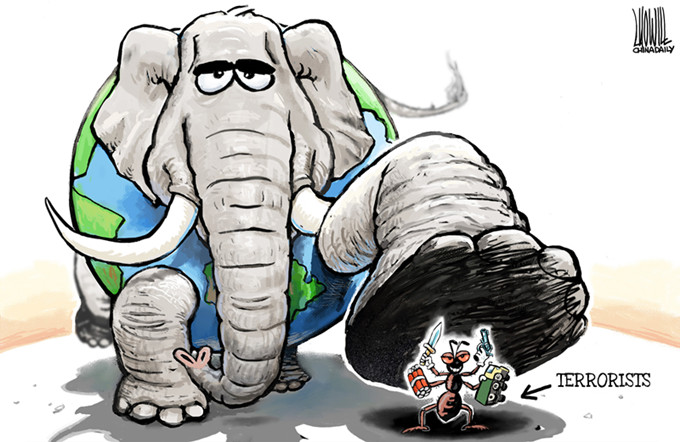Boston attack will not change US strategy
The Boston terrorist attack on April 15 has once again focused attention on the US' war on terror.
The US launched anti-terrorism wars far away from the US after the Sept 11 terrorist attacks in 2001, and many al-Qaida leaders, including Osama bin Laden, have been killed. However, many innocent civilians have also been killed and injured, which has provoked widespread public anger around the world. Meanwhile, the threat from homegrown terrorists has grown, which has prompted concerns about the domestic security environment in the US.
Despite this, the US' anti-terrorism stance hasn't fundamentally changed, as terrorists have limited capability to cause trouble in the US. The main opponent of the US is still Middle East terrorist organizations, and the terrorists' background is comparatively simple.
In general, the US' efforts in coping with terrorist attacks are effective. The high-performance of the US anti-terrorism sector aided by civilians can thwart the majority of planned terrorist attacks. So the threat to the US from terrorist attacks is no greater than before.
Some people may ask whether the Boston attack will have an influence on the US' return to the Asia-Pacific strategy.
The answer is probably no.
So far, the evidence suggests that the background to the Boston bombings is not complicated, and the attack can basically be regarded as individual behavior. There seems to be no Middle East terrorist organizations involved in the attack, which means the threat to the US' national security was limited. So the US government will not regard anti-terrorism as the most important national policy as it did after the 9/11 attacks.




















